In This Article
Hemp Oil Overview
The medicinal use of hemp oil has become very common today due to its versatility and amazing health potential. Men and women who want to make healthier lifestyle choices and those who appreciate holistic approach toward good health and wellbeing love hemp oil.
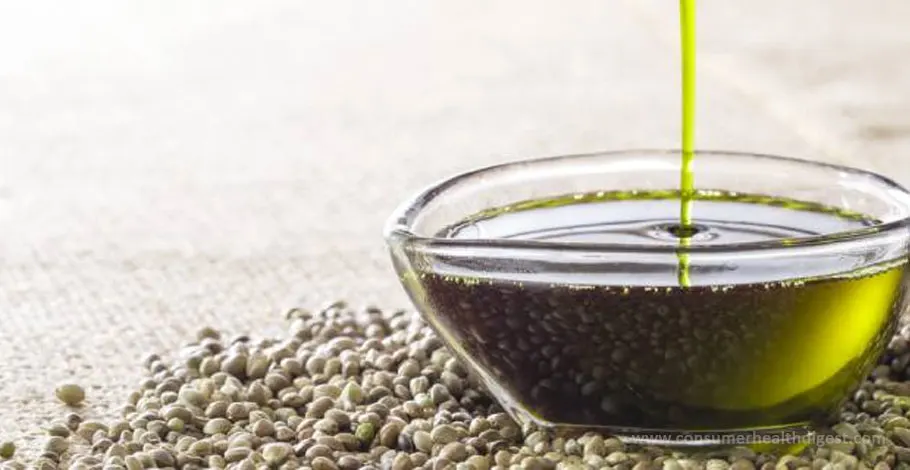
It’s easy to find and purchase this oil, but before you do, so it is important to get informed about all the advantages and risks that come with it. You’ve probably read a lot about the CBD oil benefits associated with natural hemp oil intake, but what about the side effects?
Throughout this post, you’re going to learn more about adverse effects linked with hemp oil consumption.
What Is Hemp?
Despite the popularity of hemp oil, most of us don’t know enough about the plant itself. Before we even begin discussing side effects of the oil, it is important to go through basic hemp info.
Hemp belongs to the Cannabis sativa family, but it is not same as marijuana. It is a common misconception that there’s only one Cannabis plant, “regular” marijuana, and nothing else.
In fact, a lot of people are reluctant to start using hemp oil thinking it’s marijuana. Can Cannabis Sativa seed oil make you high?
Unlike marijuana, hemp doesn’t contain psychoactive properties meaning it cannot get you “high”. The plant is primarily used for industrial and commercial purposes.
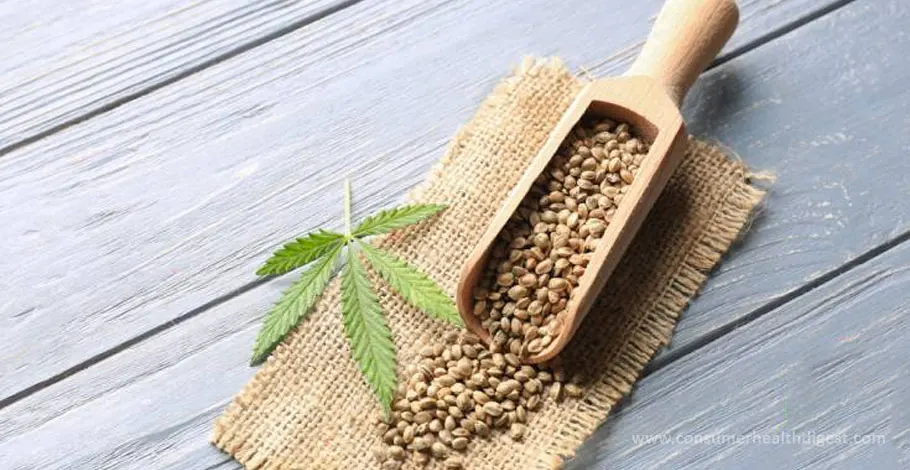
Scoop Hemp Seeds
What makes hemp different from marijuana is the low concentration of tetrahydrocannabinol (THC), the main compound in marijuana and a cannabinoid that is responsible for psychoactive effects.
For instance, hemp has .3% to 1.5% of THC while marijuana contains about 5% to more than 20% THC.
Hemp is abundant in CBD, or cannabidiol, an important cannabinoid responsible for the vast majority of CBD health benefits associated with cannabis plants. The CBD doesn’t have psychoactive properties.
Is Hemp Oil Same As Cannabis Oil?
Isn’t hemp oil the same thing as cannabis oil? Actually, it’s not. Although they are made from the same plant, hemp and cannabis oil are two different products. These oils contain different biochemical molecules thus exhibiting different effects on your body.
Essentially, hemp oil is nutritional oil made of hemp seeds. Like other types of seeds, those obtained from hemp plants are nutritious and versatile while providing potent health benefits.
On the other hand, cannabis oil is made from a specific part of Cannabis sativa plant with high cannabinoid concentrations.
Hemp oil is low in THC and contains more CBD than cannabis oil. It is also important to mention that hemp oil is legal in all states primarily due to low THC content and the oil is often imported from other countries.
Before going through a press, the hemp seed is cleaned to eliminate the possibility of contamination and remove a great deal of THC. The extraction process of this oil is called cold pressing because the hemp must never be exposed to temperatures higher than 40°C.
On the other hand, many cannabis oil extraction processes involve the use of solvents such as butane, CO2, and ethanol. The purpose of solvents is to strip the cannabis to a pure form to retain all the cannabinoids.
What Are The Side Effects Of Hemp Oil?
Everything we use in our diet or to prevent or manage some health problem has a risk of side effects, and hemp oil is not an exception.
Naturally, this doesn’t mean every person who uses hemp oil will experience adverse effects, but it is important to get informed. Being aware of negative outcomes helps you prevent them.
While hemp oil is generally considered safe for consumption, some side effects are still possible, and they are outlined below.
1. Cardiovascular Health Risk
Hemp oil is described as nature’s most perfectly balanced oil thanks to the 3:1 ratio of Omega-6 fatty acids and Omega-3 fatty acids. The ratio is considered the optimal requirement for healthy nutrition in the long run.
Like Omega-3 fatty acids, Omega-6 is essential for our health, and the only way to obtain them is through food and supplements because your body doesn’t make them. [1]
Omega-6 fatty acids belong to the group of polyunsaturated fatty acids (PUFAs) which are important for brain function, stimulate skin and hair growth, regulate metabolism, among other things.
Omega fatty acids are vital for our health and wellbeing, but Omega-3s exhibit more health effects than Omega-6 counterparts. While moderate consumption improves your health, increased intake of polyunsaturated acids can increase the risk of cardiovascular conditions.
For example, higher intake of Omega-6 fatty acids increases phospholipid oxidation which leads to oxidized species of LDL (bad) and HDL (good) cholesterol.
The oxidization of HDL cholesterol induces pro-inflammatory effects of Omega-6 and contributes to the development of atherosclerosis, according to a review of studies published in the Journal of Preventive Cardiology. [2].
Atherosclerosis is a condition wherein plaque builds up inside the arteries and increases the risk of cardiovascular events such as heart attack and stroke. In addition, atherosclerosis is the leading cause of vascular disease worldwide.
About 32% of deaths are attributed to this condition, which is a staggering number. [3]
2. Gastrointestinal distress

Gastrointestinal Distress
One of the most common side effects of hemp oil consumption is gastrointestinal distress. For instance, an affected individual may experience symptoms such as loosing of stool, diarrhea, bloating, and cramps in the abdominal area.
Don’t be alarmed, these symptoms are usually mild, and they don’t worsen later. You are more likely to experience these side effects when you just start using healthy hemp oil, and in many cases, they lessen or disappear the more you consume it.
It is important to mention that men and women with gastrointestinal conditions such as irritable bowel syndrome (IBS) should consult their doctor prior hemp oil use.
You are more sensitive to compounds and nutrients in all foods and oils you consume, and hemp protein might aggravate your symptoms. Gastrointestinal distress may alter your appetite and lead to weight changes.
3. THC Sensitivity
Despite the fact that hemp oil is very low in THC traces of this cannabinoid are still present. Of course, for many people, this isn’t a problem as the concentration is too low to induce psychoactive effects or show you’re positive for marijuana in urine tests.
Although rare, some people are sensitive to THC.
Individuals with THC sensitivity tend to experience pollen-like allergy symptoms such as [4]:
- Chest tightness
- Conjunctivitis (pink, bloodshot eyes)
- Eye irritation (itchiness, puffiness, swelling)
- Hives (skin rash)
- Nasal congestion
- Runny nose
- Sneezing
Interestingly, persons with THC sensitivity tend to experience hallucinations, i.e. psychoactive effects that are usually characteristic of marijuana. That’s why you should never consume excessive amounts of THC, especially if you developed sensitivity to it.
4. Harmful Peroxides
Most of us don’t pay too much attention to temperature when using different oils when cooking. That’s a major mistake because every oil has a sort of a limit it cannot cross in order to be able to exhibit its benefits.
For example, if you heat hemp oil above 121°F (49°C) the polyunsaturated fatty in it will start breaking down into harmful peroxides. One study found that hemp seed oil is less stable against peroxidation than olive oil. [5]
Peroxides in oil release free radicals and contribute to oxidative stress that affects your skin and other organs. Strive for hemp seed oil when preparing warm and cold dishes, i.e. meals that don’t require high heat. [6]
5. Blood Clotting

Blood Clotting
Excessive consumption of hemp oil, using more than recommended, can affect how the anticoagulant and blood platelets work and it can also stop their production entirely, in some cases. [7]
Blood platelets are fragments of cells which release a chemical called thromboxane when you get a cut or scratch.
The purpose of this chemical is to send a signal to other platelets to “help out” and prevent excessive bleeding. Basically, blood platelets are crucial for blood clotting. Hemp oil can adversely affect anticoagulants and cause thickening of the blood.
Abnormal blood clotting can lead to a heart attack. Persons with blood clotting deficiencies could benefit from hemp oil, but consulting your doctor is a must in order to prevent counterproductive effects. [8]
You May Also Want To Read – A Stress Reliever For Your Loved One
6. Prostate Cancer Risk
Hemp oil has the tremendous potential to trigger the reproduction of cells which heal your body, one of many reasons why we love it. The ability to promote cell reproduction makes hemp oil an excellent remedy for skin conditions which require continuous cell regeneration.
As always, excessive consumption of some food or oil can cause unfortunate scenarios in people. For instance, a study from the Cancer, Causes, and Control found that alpha-linolenic acid (ALA) might be a risk factor for prostate cancer. [9]
Alpha-linoleic acid is a type of Omega-3 fatty acids primarily found in plant sources such as nuts and vegetable and plant oils. Prostate cancer is the most common type of cancer among American men.
According to the American Cancer Society by the end of 2017, there will be 161,360 cases of prostate cancer and 26,730 deaths due to this disease. [10]
If hemp oil triggers cell reproduction and helps us heal, then how can it contribute to cancer? You’re probably asking yourself that question right now and, as mentioned above, it is due to ALA.
Since hemp oil can lead to reproduction of “regular” cells, it can also lead to cancer cell reproduction too. This is considered as one of the most dangerous side effects of hemp oil, but your chances of developing it are low.
7. Interaction With Other Medications
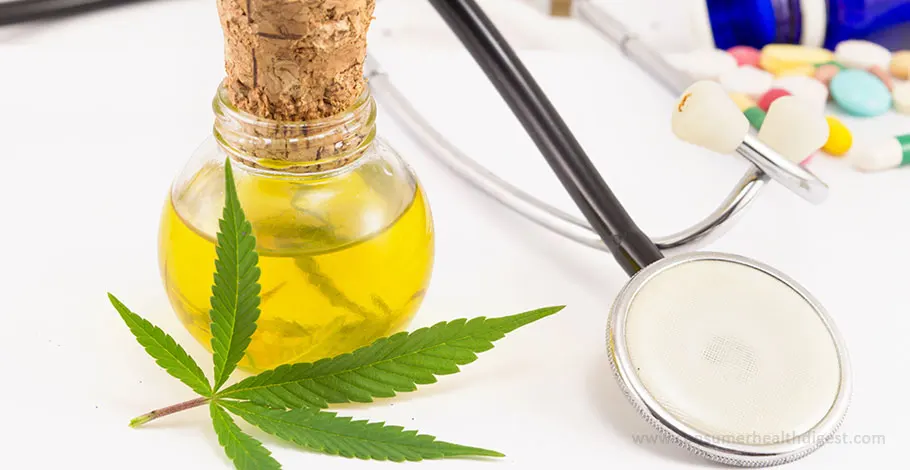
Interaction With Other Medications
This is a rare side effect, but still, it’s important to discuss it. Hemp oil is high in CBD which exhibits all health benefits, but it can also interact with some medications and prevent your body from metabolizing them properly.
For example, if you’re taking a blood pressure medication in combination with hemp oil, the effects of those pills may be reduced or eliminated entirely. Individuals who are taking medications for their health condition should consult their doctors prior to use of hemp oil.
Your doctor will inform you whether it’s safe to take hemp oil while also using medications or not.
8. Dry Mouth
Dry mouth, or xerostomia, is a common problem that we experience when salivary glands in the mouth do not produce sufficient amount of saliva to keep the mouth wet.
You need saliva because it prevents tooth decay by neutralizing acids produced by bacteria, washing away food particles, and limiting bacterial growth.
In addition, saliva enhances one’s ability to taste, and it makes it easier for you to chew and swallow your food. Let’s not forget that food digestion starts in your mouth, not in the stomach as commonly believed because saliva also contains enzymes that aid the digestive process.
In many instances, dry mouth is a side effect of medications, but it can also occur as an adverse effect associated with hemp oil use.
A common symptom of CBD is an unpleasant sensation in the mouth or persistent dryness. Why does this happen? Hemp oil could cause dry mouth symptom due to the involvement of the endocannabinoid system in the inhibition of saliva secretion.
A study published in the journal Experimental Biology and Medicine found that both type 1 and type 2 cannabinoid receptors are found in the submandibular glands, bilateral salivary glands located in the face. [11]
These particular glands are responsible for the production of saliva. That being said, activation of the cannabinoid receptors changes salivary production.
As a result, an affected individual experiences mouth dryness or cotton-mouth and you become thirsty even after you’ve just had a glass of water.
9. Lightheadedness
Higher consumption of hemp oil can lead to a drop in blood pressure within a few minutes after CBD enters your system. The drop in blood pressure is strongly associated with lightheadedness.
A study from the Journal of Clinical Investigation found that a single dose of CBD reduces resting blood pressure and the blood pressure response to stress. [12]
While this can be a good thing for individuals with hypertension, high blood pressure, it may be uncomfortable for persons whose blood pressure is on the lower side. A drop in blood pressure and lightheadedness usually go away after you drink a cup of tea or coffee.
10. Drowsiness

Woman Yawning Near Laptop
Drowsiness occurs when a person feels abnormally sleepy or tired during the day. Anxiety can be one cause of drowsiness as well as a side effect some medications.
In fact, drowsiness is a potential side effect associated with hemp oil use, as well.
The journal Behavioral Neuroscience published a study which discovered that CBD enhances wakefulness and decreases slow wave sleep and REM sleep. Scientists concluded CBD is a wake-inducing compound, meaning it can make you feel drowsy next morning if you don’t get enough sleep. [13]
You shouldn’t drive a vehicle or operate heavy machinery if you experience this side effect. Plus, some people may not experience wakefulness, but only drowsiness and fatigue within an hour after they take hemp oil.
11. Headache
All of us deal with headaches at one point or another, and they can be very frustrating. A headache can occur due to a number of reasons, and one of them is an adverse effect to some medication or, in this case, hemp oil.
Let’s not forget that millions of people also develop a migraine.
How could hemp oil cause headache? It all comes down to fatty acids including oleic acid. One study found that fatty acids and linoleic and oleic acids contribute to migraine headache mechanisms.
During a migraine, free fatty acids levels increase just like blood lipids and platelet aggregation. At the same time, the levels of neurotransmitter serotonin reduce and prostaglandin production increases.
Prostaglandins are a group of lipids made at sites of tissue damage or infection involved in injury or illness. Reduction of fatty substances intake reduces the severity of headaches while increased consumption induces headaches and migraines.
Hemp Oil Dosage

Hemp Oil Dosage
As seen above, different side effects are associated with hemp oil ranging from mild to severe health outcomes. The risk of experiencing side effects increases with excessive consumption.
We are inclined to believe that just because something is good for us, we are allowed to consume large amounts thinking they’ll make us even healthier. It doesn’t work that way. Moderation is the key to everything you consume, including hemp oil.
Read Also – Terpenes And Where To Get Them
In many cases, you will see dosage instruction on hemp oil bottle. It’s important to stick to the recommended intake. If you’re in doubt, the best thing to do is to consult your doctor and ask about the dosage he or she would recommend.
Generally, the recommended dosage of hemp oil is 1-2 tablespoons a day and taking more than that could lead to side effects. When using hemp oil for the very first time, you should start from the lowest dosage and see how your body will react.
Mistakes To Avoid
A great portion of your risk of experiencing hemp oil side effects comes down to the product you purchase. Not every hemp oil item is created equal and choosing wrong products could jeopardize your health, induce side effects, and it’s not beneficial for your wallet either.
To reduce the risk of side effects, here are some common mistakes you should avoid:
- Not doing your research – Although we are witnessing the rise in popularity of hemp oil and other cannabis-related oils, they are largely misunderstood. In order to understand how it can help you and to avoid any unfortunate effects, it is important to do your research and get informed about hemp oil, cannabis oils, their constituents, and other important characteristics that every user should know
- Not seeking quality – Thanks to the internet you can easily find and purchase hemp oil, but as previously mentioned not all products are created equal. Some products are incredibly effective, but others aren’t as much. With a simple search on Google or some other search engine, you can come across a multitude of websites offering hemp oil for a cheap price. Sure affordability of the product is always important, but the quality is vital. Instead of focusing on the price tag, you should make sure the product truly has necessary quality before making a purchase
- Not looking for experienced supplier – When looking for hemp oil, most people focus on price and benefits provided on the label, but they completely overlook the manufacturer or supplier. That is a big mistake! Just like with other products, the reputation and experience of a supplier matter the most. You should never underestimate the power of experience. This indicates existence of a certain tradition and shows a manufacturer has effectively developed extraction methods and other important methods to produce high-quality oil
- Not checking user experiences – We live in the age of the internet where people leave reviews about everything they use and hemp oil isn’t the exception here. This isn’t a bad thing and it can, actually, help you purchase a high-quality and effective product. Reading customer reviews and experiences is a great way to find out whether the product works or not. Of course, you just have to differentiate those legit reviews from paid posts and fake purchases
- Not paying attention to purity – Purity is an important factor to look for in CBD-based oils. The level of purity depends on ingredients that are added to the oil. These can include sweeteners, preservatives, solvents, and artificial colorings. That’s why reading the ingredient label is important
Read More: All You Need To Know About The Legality Of CBD Hemp Oil
Final Verdict
Hemp oil derives from seeds of Cannabis plants and offers a wide array of health benefits. Uses of hemp oil are numerous from skin and hair benefits to managing some specific health problem.
What’s more, the oil can also be used in cooking. Due to the popularity of hemp oil, it is important to get educated about its side effects.
Although side effects of hemp oil can be serious, they are rare and usually occur when a person consumes excessive amounts, way above the recommended dose.
13 Sources
We review published medical research in respected scientific journals to arrive at our conclusions about a product or health topic. This ensures the highest standard of scientific accuracy.
[1] Khandelwal, Shweta, Laura Kelly, Richa Malik, Dorairaj Prabhakaran and Srinath Reddy. “Impact of omega-6 fatty acids on cardiovascular outcomes: A review.” Journal of preventive cardiology 2 3 (2013): 325-336 .[2] Omega-6 Fatty Acids and Risk for Cardiovascular Disease: https://www.ahajournals.org/doi/10.1161/circulationaha.108.191627
[3] Can You Have a Hemp Seed Allergy? Watch For These Symptoms: https://www.superfoodly.com/hemp-seed-allergy/
[4] Hemp-seed and olive oils: their stability against oxidation and use in O/W emulsions.:https://wwww.unboundmedicine.com/medline/citation/16130045/Hemp_seed_and_olive_oils:_their_stability_against_oxidation_and_use_in_O/W_emulsions_
[5] Mechanisms and Factors for Edible Oil Oxidation: https://onlinelibrary.wiley.com/doi/pdf/10.1111/j.1541-4337.2006.00009.x
[6] Hemp Oil Side Effects You Need to Know: https://healthyhempoil.com/hemp-oil-side-effects/
[7] Rodriguez-Leyva, Delfin and Grant N Pierce. “The cardiac and haemostatic effects of dietary hempseed.” Nutrition & Metabolism 7 (2010): 32 - 32.
[8] Dietary n - 6 and n - 3 Polyunsaturated Fatty Acids and Prostate Cancer Risk: A Review of Epidemiological and Experimental Evidence : https://www.jstor.org/stable/3553708?seq=1#page_scan_tab_contents
[9] Key Statistics for Prostate Cancer: https://www.cancer.org/cancer/prostate-cancer/about/key-statistics.html
[10] Olga Kopach, Juliana Vats, Olga Netsyk, Nana Voitenko, Andrew Irving, Nataliya Fedirko; Cannabinoid receptors in submandibular acinar cells: Functional coupling between saliva fluid and electrolytes secretion and Ca2+ signalling. J Cell Sci 15 April 2012; 125 (8): 1884–1895. doi: https://doi.org/10.1242/jcs.088930
[11] A single dose of cannabidiol reduces blood pressure in healthy volunteers in a randomized crossover study: https://insight.jci.org/articles/view/93760
[12] The nonpsychoactive Cannabis constituent cannabidiol is a wake-inducing agent.: https://www.unboundmedicine.com/medline/citation/19045957/abstract/The_nonpsychoactive_cannabis_constituent_cannabidiol_is_a_wake_inducing_agent_
[13] American Nutrition Association: http://americannutritionassociation.org/newsletter/role-diet-migraine-headaches




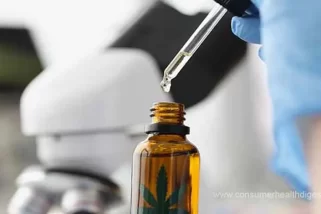
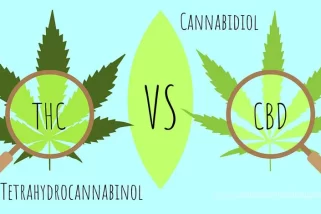


 This article changed my life!
This article changed my life! This article was informative.
This article was informative. I have a medical question.
I have a medical question.
 This article contains incorrect information.
This article contains incorrect information. This article doesn’t have the information I’m looking for.
This article doesn’t have the information I’m looking for.